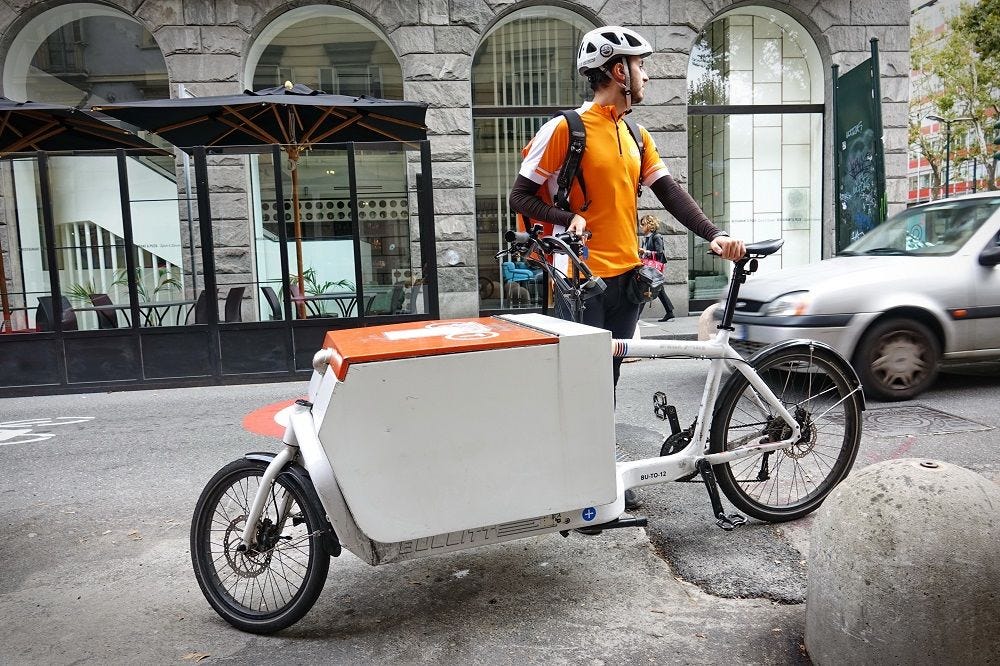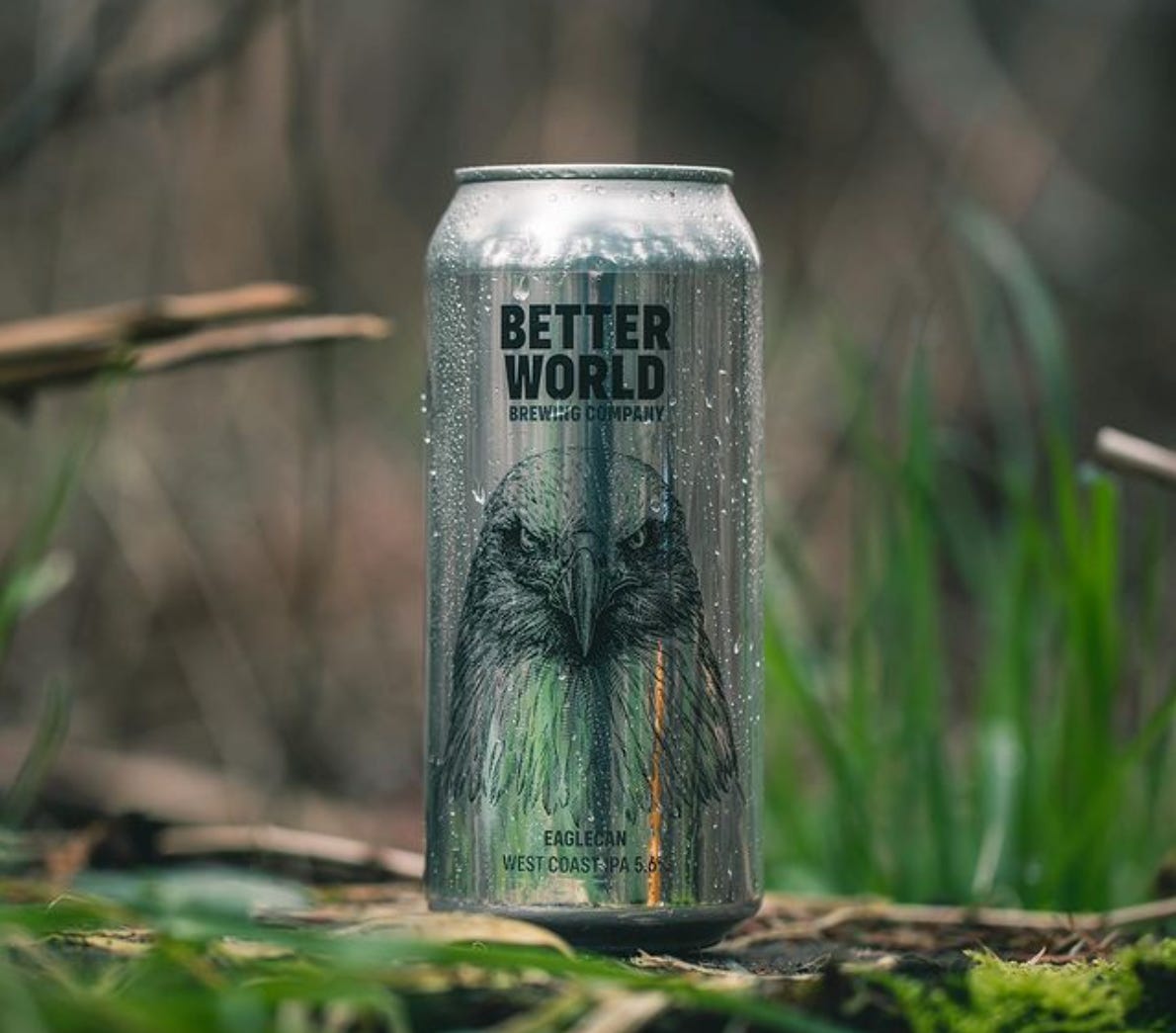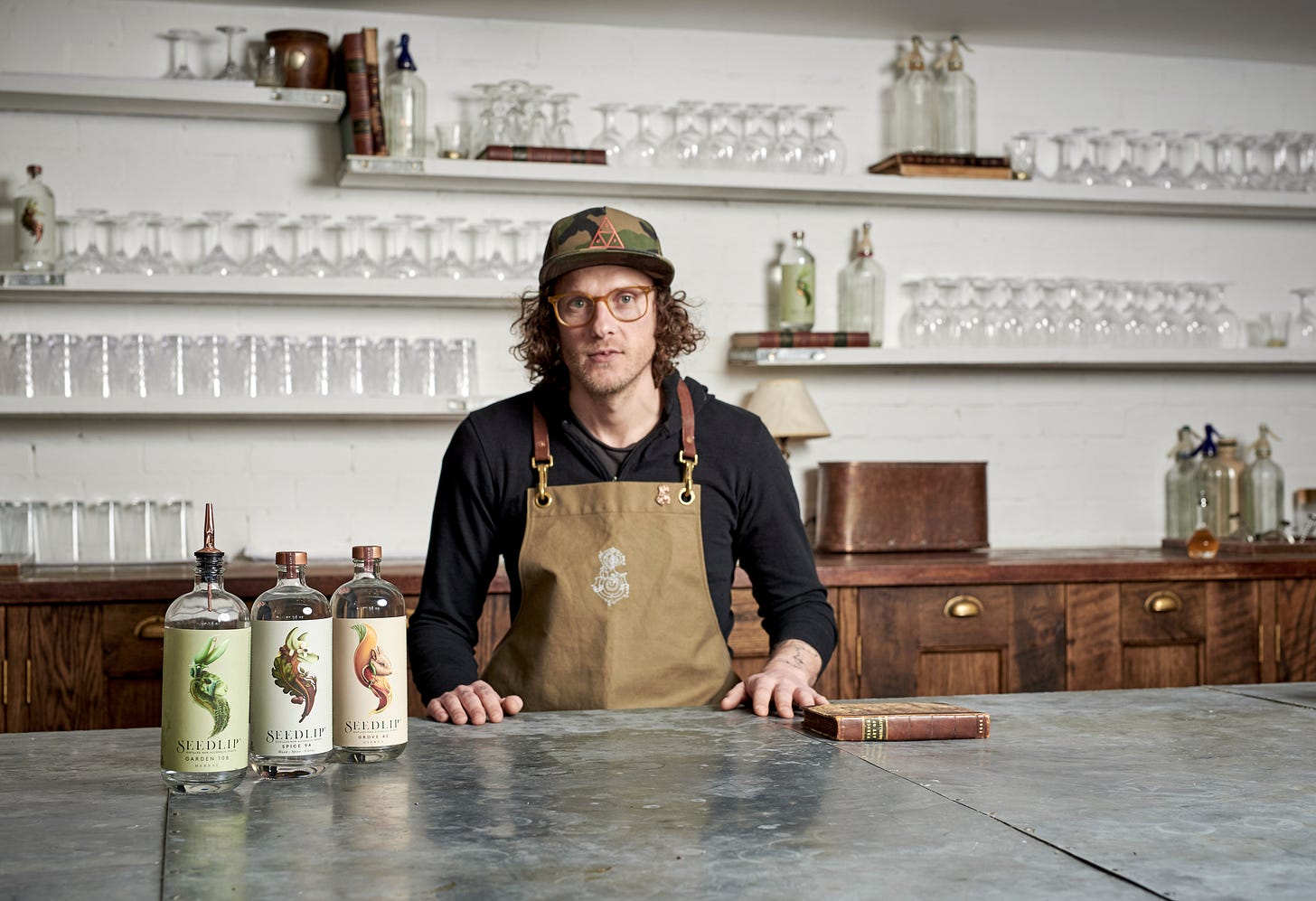🌱 Your Last Mile Matters: Here's How to Improve It
Ft. Better World Brewing
Happy Friday!
Starting today, each Friday we’ll be bringing our weekly good news roundups straight to your inbox, along with a quick look at a topic and brand you might be interested in. Want to read on? We’ll be sure to share resources and ways you can ‘follow up’ with what we’ve covered. Oh, and if you’ve missed any recent articles don’t worry - we’ll link those too!
What we’re covering this week:
Why last mile delivery is at a pivotal moment, and what brands can do to get ahead.
How Better World Brewing are driving impact with every pint sold.
In case you missed it: Impact Initiative #5 - Seedlip
> Good News This Week
🎯 Jimmy’s Iced Coffee has re-launched it’s core duo in new aluminium ‘bottlecans’, saving 9 million plastic lids a year.
🎯 Pandora launched its first lab-created diamond collection, which has been certified as carbon neutral. Pandora has also pledged to phase out use of mined diamonds, and use 100% recycled gold and silver by 2025.
🎯 IKEA has launched a ‘buy back’ scheme, allowing customers to sell their old furniture back in IKEA stores across England.
⭐️ Co-op announced it’s own-brand food and drink will be carbon neutral by 2025, unveiling a new 10-point climate plan aiming for reaching net zero emissions by 2040.
⭐️ Asda have pledged to remove 3 billion pieces of plastic from products and halve GHG emissions produced by operations by 2025. They aim to be a net zero carbon business by 2040.
⚡️ UK supermarkets, from Tesco to M&S, have threatened to boycott Brazilian products over plans by the Brazilian government to privatise occupation of public land. Many fear this would accelerate deforestation for purposes such as agricultural grazing. Read more here.
> Quick Take
Your Last Mile Matters: Here’s How To Improve It
Often the most heavily compared and criticised by consumers, last mile delivery is crucial to brand loyalty and reputation. Defined as the movement of goods from a transportation hub to their final destination, over the last 10 years customers have looked for speed, precision, convenience and security. Now, they’re adding sustainability to that list.
In January 2020, the World Economic Forum (WEF) reported that ‘Growing demand for e-commerce delivery will result in 36% more delivery vehicles in inner cities by 2030, leading to a rise in both emissions and traffic congestion…’. COVID-19 saw an increase in local fulfilment centres, with retailers identifying opportunity in the abundant empty stores. This surprising trend has prompted Accenture’s David Hubbard, director of supply chain operations, to estimate that ‘70% of fulfilment will occur within five miles of the home’ - a ‘hyper-local’ new era which is a pivotal moment in the environmental impact of last mile delivery.
In this pivotal moment, there’s plenty of opportunity for brands to get creative with this often-tricky consumer touchpoint. Electric cycles and vans are a popular choice, with DHL Express ordering Fiat electric delivery vans and UPS opting for Tesla’s electric HGVs. Investments in predictive algorithms, similar to HERE Fleet Telematics, to reduce last mile emissions have been championed by brands like HelloFresh and commercialised by Ocado. For smaller businesses, UK favourite DPD has committed to making every parcel delivered carbon neutral and partners like PedalMe have been widely adopted by sustainability-focused brands like Rubies in the Rubble.
The financial benefit of this could be huge. With last mile costs accounting for 53% of total shipping costs, and ‘free shipping’ options increasingly expected by consumers, last mile innovations create opportunities for reduced costs and emissions - making investment by brands a clear win-win.
Interested? Read on…
The Sustainable Last Mile - Accenture
E-Cargo On-Demand Bike Service Pedal Me Secures More Than £400,000 Through Equity Crowdfunding Campaign on Crowdcube - Crowdfund Insider
Haven’t subscribed to Following the Footprints yet?
> Brand Spotlight
Better World Brewing: Planet Positive One Pint At A Time.
Established in 2019 by four environmentally-conscious, beer-loving friends, Better World Brewing is a carbon negative brewery determined to make a positive environmental impact. Working as a ‘Gypsy’ brewery - one that uses others’ facilities to brew - allows Better World to minimise expenditure and reduce waste. With approximately 80% of a brewery’s by-product being spent grain, Better World are on a mission to make their brewing more circular by upcycling the versatile spent barley grain for use by local farmers.
Each brew is offset through reforestation and afforestation projects coordinated by One Tree Planted and Ecologi - who plant trees in the UK, Mozambique and Borneo. Better World aim to plant 60,000 trees in the next 2 years alone. In Borneo, Better World are actively protecting 158,144 acres of peat forest in partnership with the Orangutan Foundation. The team is committed to conserving the health of our oceans too - volunteering on clean ups with Surfers Against Sewage. If that wasn’t enough, they are also members of 1% for the Planet, donating at least 1% of their revenue to non-profit, environmental projects.
Whether it’s diverting by-product from landfill, protecting land and sea, or pledging their profits for the benefit of the planet, Better World are staying true to their commitment to create a better world one beer at a time.
Interested? Read on…
(Beer) Waste Not, Want Not: 5 Ways Breweries Recycle Their Waste - Modern Farmer
Towards Zero Waste in Beer Production - New Trends for Brewery Solutions - IBD Learning Zone
Fancy trying out Better World Brewing? Shop them below:





